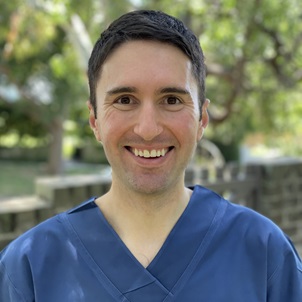2024 | Volume 25 | Issue 3

Recipient of the RACS Pickard Robotic Training Grant, Dr Andrew Shepherd is committed to using his training to benefit the people of South Australia.
“Receiving this scholarship and working in a world-leading, innovative robotic surgery program will bring long-term benefits to the people of South Australia. That’s really the aim of the scholarship,” Dr Shepherd says.
With the grant, he is pursuing a Senior Clinical Robotic Urology Fellowship at Guy's and St Thomas' NHS Foundation Trust in London, UK.
Dr Shepherd says it was during his Urology term as a resident at the Royal Adelaide Hospital, that he developed an interest in the field. Under the guidance of exceptional mentors, he found himself drawn to the diverse scope of urological work, encompassing both cancer and non-cancer cases.
“I was particularly impressed by the positive functional outcomes experienced by patients within the field—a distinguishing feature compared to other surgical specialties. It was this combination of interesting work, positive mentors, and good patient outcomes that solidified my decision to pursue a career in Urology.”
During these early years, Dr Shepherd also gained exposure to robotic surgery, which left a lasting impression on him. He found the field of urology especially attractive due to its position at the forefront of technological innovation. "Notably, Urology emerged as one of the pioneering specialties to fully embrace robotics," he says.
Already seven months into his 12-month Fellowship program, Dr Shepherd says, “The breadth of skills and experience among the team at Guy's and St Thomas' is truly remarkable. One particularly impressive aspect is their wholehearted adoption of robotics.
“The hospital houses eight robotic systems from various manufacturers, including DaVinci, Versius and the UK’s first Hugo system. I've had extensive exposure to an array of applications. I'm hopeful that we'll be able to broaden the scope of surgeries available to patients in Adelaide—reducing the need for them to look for specialised operations elsewhere.”
With a focus on robotic prostate and renal surgery, Dr Shepherd has also delved into robotic Retroperitoneal Lymph Node Dissection for testicular cancer and reconstructive procedures. The Fellowship has encouraged research projects including evaluating the new Hugo robotic system and safety and feasibility of the high volume of salvage radical prostatectomy after focal therapy and radiotherapy for prostate cancer, performed in the unit. He has also been active in the conference circuit and is writing several manuscripts on these topics.
“Our unit also has extensive experience with artificial intelligence, particularly in robotic surgery and robotic surgery simulation and training. These are also areas of research I've been involved in while I've been here,” he says.
A noteworthy aspect of Dr Shepherd's work lies in using 3D models for image-guided surgery, facilitating procedures with enhanced precision. These physical 3D prints, such as those depicting kidneys or prostates, serve as invaluable aids in the operating theatre.
Dr Shepherd anticipates the integration of molecular tracers, integrated and overlaid real time image guidance and virtual reality into robotic platforms in the future. He envisions these technological leaps as catalysts for elevating the quality and precision of robotic surgery in the years to come.
Reflecting on the broader scope of his Fellowship, Dr Shepherd says, “One of the nice things about doing a Fellowship like this is being able to build international collaborations, which also helps your own unit and develops skills and experience in your own country.”
This Fellowship has energised Dr Shepherd as he starts his consultant career, strengthening his love for robotics and broadening his view of its many uses.
He believes that those seeking additional training opportunities must align their goals with the offerings of these Fellowships, and encourages others to apply for the RACS scholarships program.
With his wife and two young children accompanying him in the UK, Dr Shepherd says, “That’s also been quite a fulfilling part of the Fellowship. It's not just been about the professional aspects, but also the opportunities for broadening experiences outside of work for me and my family.”